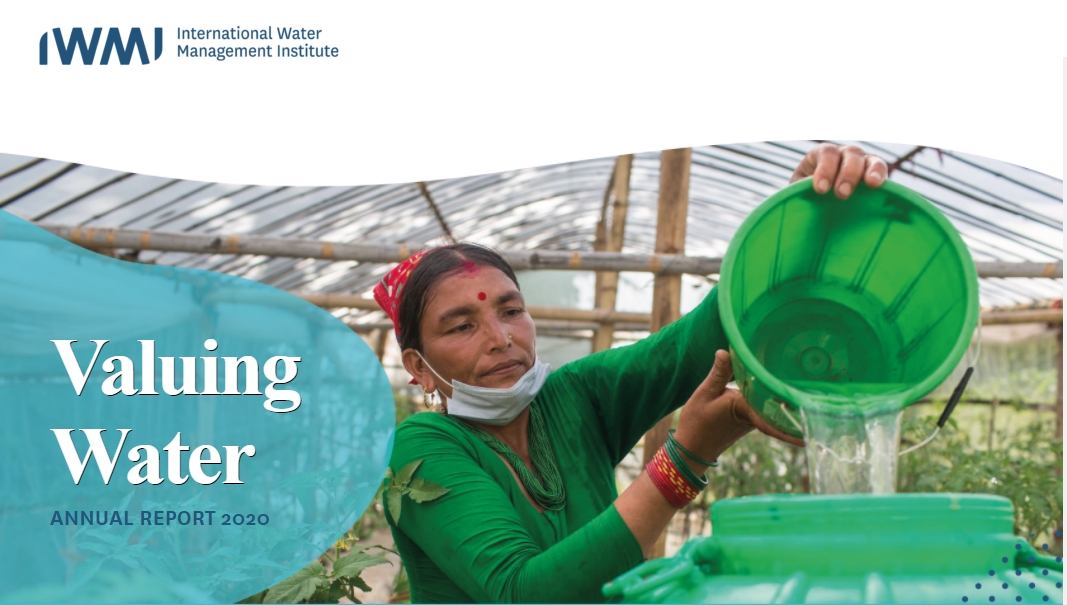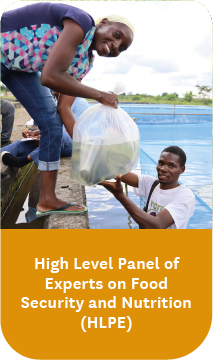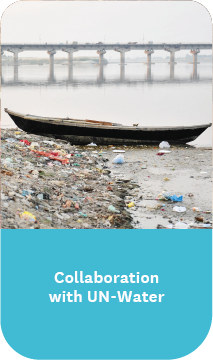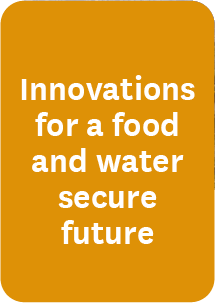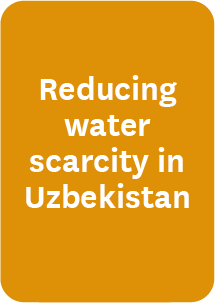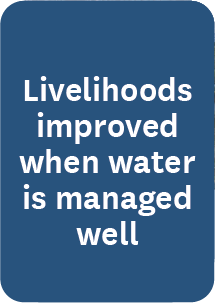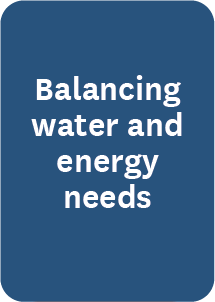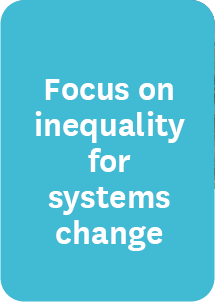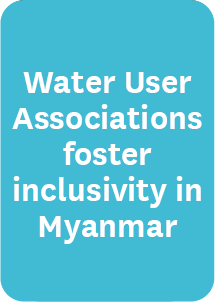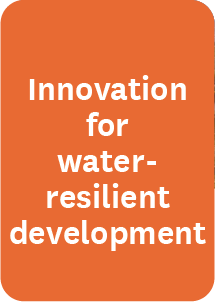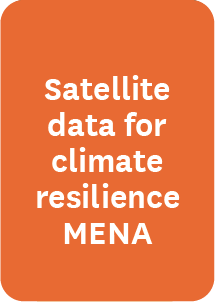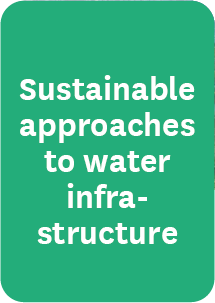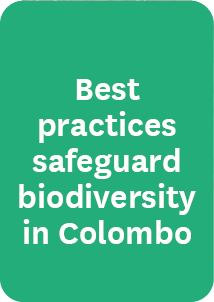Valuing
water
Message from the Board Chair and Director General
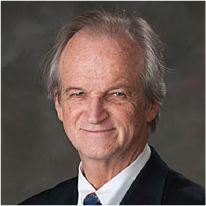
Roberto Lenton
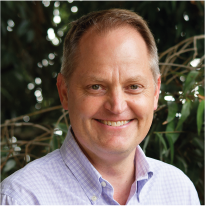
Mark Smith
The Covid-19 pandemic remains an unprecedented global challenge for our partners, for the water insecure communities and vulnerable smallholder farmers that stand to benefit from our work, and for our staff.
We are enormously proud of the way that the IWMI community has pulled together, as one, in the face of this disruption. It has been truly humbling and inspiring to see how our colleagues have adapted and adjusted and ensured that the organization has been able to continue to focus on its core vision, to achieve a water-secure world.
Global
relevance
The indispensable role of water management in building the future we want is captured in Goal 6 of the United Nations Sustainable Development Goals (SDGs), and recognized in a variety of ambitious international policy statements and initiatives.
IWMI at a glance in 2020





Major trends shaping IWMI's strategic
and operational context in 2020
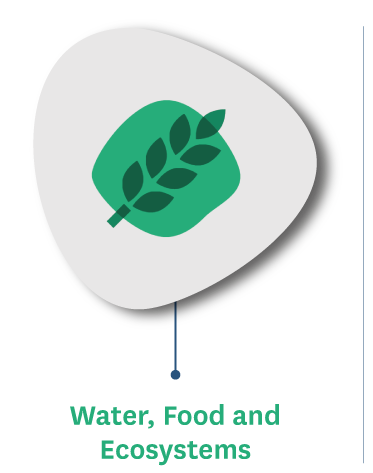
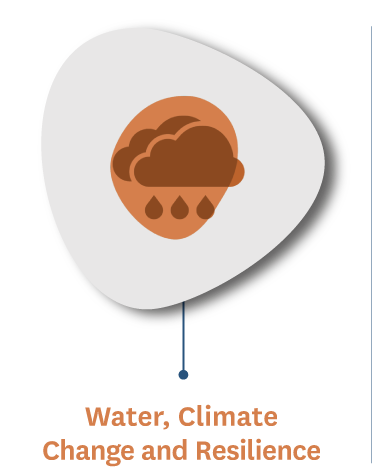
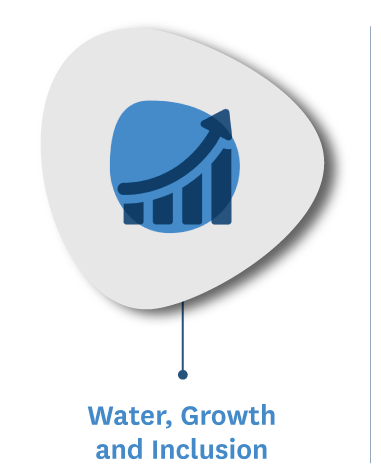
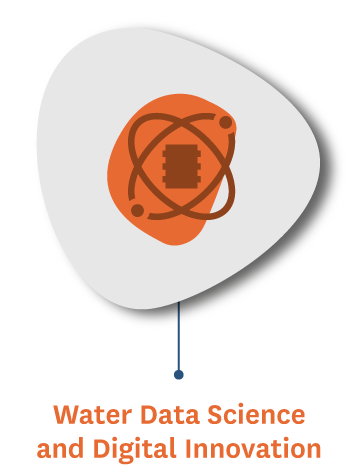
An estimated 690 million people are hungry, an increase of 60 million over the past five years, according to the United Nations. An additional 95 million people will be living in extreme poverty and hunger due to the Covid-19 pandemic.
There is increasing support for nature-based solutions (NBS) for climate resilience, with growing evidence that protecting and restoring wetlands and watershed ecosystems can reduce water risks and secure water supplies, and an estimate that NBS can provide more than 30% of mitigation solutions by 2030.
The pandemic could cause 140 million people to fall into extreme poverty, potentially increasing hunger and malnutrition for millions. The world’s most vulnerable, including women, youth, smallholder farmers, and the urban poor, will be the hardest hit.
Connectivity gaps in rural areas are particularly pronounced in least developed countries (LDCs), where 17% of the rural population live in areas with no mobile coverage at all, and 19% of the rural population is covered by only a 2G network.
Stories of change
One CGIAR’s new ambitions are defined by a set of impact areas, with water – and therefore water systems science – at the heart of each.
The stories below demonstrate how IWMI is delivering on these impact areas now and cementing a solid foundation for our future contributions.
Major awards
IWMI receives the 2020 Water Award from the Prince Albert II of Monaco Foundation
![]()
IWMI was awarded the 2020 Water Award from the Prince Albert II of Monaco Foundation in recognition of the Institute’s outstanding research for finding water solutions for sustainable development.
The Foundation’s Awards program honors key international figures and organizations for their exemplary work and dedication towards environmental protection and sustainable development with particular focus on three areas: climate change, biodiversity and water.
![]()
IWMI receives the 2020 GEO Sustainable Development Goals (SDG) Award
IWMI was awarded the 2020 GEO Sustainable Development Goals (SDG) Award in the Special Category of Innovation linked to SDG Target 13.1. This is in recognition of the Index-based Flood Insurance (IBFI) product developed by IWMI scientist Dr. Giriraj Amarnath, Research Group Leader – Water Risks to Development and Resilience (WRDR). He accepted the award on behalf of IWMI at the virtual awards ceremony held on November 4, during Geo Week 2020. This is the first time a CGIAR center has won this award.
Dr. Claudia Sadoff wins IWRA honorary membership for significant contributions to the field of water resources
![]()
IWMI’s (former) Director General Claudia Sadoff was one of distinguished recipients of International Water Resources Association’s new Honorary Memberships – for significant contributions to the field of water resources.
An Honorary Membership is the highest honor IWRA can bestow and is awarded to those who have made significant contributions to the field of water resources, or attained acknowledged eminence in the field. IWRA Honorary Membership provides free membership for life to an individual.
IWMI’s space-based drought system wins award
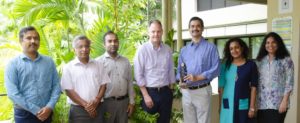
IWMI won an award for its innovative work using remote sensing technology to help nations monitor and mitigate the impacts of drought. The Institute received the Geospatial World Excellence Award 2020 for the positive impact the South Asia Drought Monitoring System (SADMS) has had.
It’s the first time a CGIAR center has won this accolade. Since IWMI launched SADMS in 2014, the system has guided national, state and district-level authorities in India and Sri Lanka to take timely action to prepare for drought. This has helped provide support for vulnerable smallholders from the worst effects of prolonged dry spells.
Key events
Farmer-led Irrigation Development (FLI) – Webinar series
In partnership with the World Bank, the Daugherty Water for Food Global Institute, and the Global Water Partnership, IWMI hosted a series of interactive webinars on accelerating inclusive farmer-led irrigation development. The virtual mini-series explored key issues and next steps for operationalizing sustainable and inclusive FLI scale-up. The webinars were geared toward practitioners, policy makers, the private sector, and researchers interested in advancing FLI globally.
Virtual World Water Week 2020
The year 2020 saw a virtual World Water Week (#WWWeek) celebrated #AtHome due to Covid-19 restrictions. World Water Week 2020 was planned around the theme ‘Water and Climate Change: Accelerating Action’. The virtual adaptation of #WWWeek brought together a broad range of convenor-hosted sessions on water and climate with IWMI co-hosting and taking part in several events.
Two Degree Initiative’s (2DI) listening sessions and online event on stakeholder voices and global R4D topics
2DI is a coalition of like-minded partner organizations from around the world, brought together with a single unifying vision – to transform the global food system for a climate-smart future. 2DI’s ambition is to reach 200 million farmers in ten participating Regional Challenges that include low- and middle-income countries. IWMI leads 2DI’s Challenge Three, which focuses on water and food security in southern Africa.
Race to Zero water dialogues
November 12, 2020, marked the water day of the Race To Zero November dialogues, part of a global campaign initially designed to drum up momentum ahead of COP26. IWMI researchers presented a showcase during the event, under the theme 'Vision of a zero-carbon, resilient future through water'.
Water, Land and Ecosystems (WLE)
The vision of the CGIAR Research Program on Water, Land and Ecosystems (WLE) is a world in which agriculture thrives within supportive, vibrant ecosystems while delivering prosperity for farming communities. In 2020, this might have seemed a distant vision with the Covid-19 pandemic and its socioeconomic consequences, such as food shortages and rising poverty, combined with droughts, floods, continuing deforestation and soil degradation.
Yet, the challenges posed by the pandemic only reinforced the critical importance of the WLE vision and research conducted by the program. Despite the challenges, WLE was able to deliver results through a unique collaboration with CGIAR Research Centers, and national, regional and international partners, as well as through the center-led bilateral programs.
There is a new spirit of rethinking and renewing built water infrastructure, and our work on natural water infrastructure that complements it continues to gain global recognition – for instance, on the critical role of wetlands in maintaining productive ecosystems and providing vital services such as flood regulation. However, interventions and innovations at the level of natural resources take years to mature and impacts are methodologically challenging to measure. For that reason, we have decided to prioritize outcome-level assessments for accountability and learning.
Fish Agri-Food Systems (FISH)
IWMI co-leads the Research Cluster on ‘Fisheries in Multifunctional Landscapes’ within the CGIAR Research Program on Fish Agri-Food Systems (FISH), with a focus on the improvement of fisheries productivity in reservoirs and irrigation canals.
Learn More...
Climate Change, Agriculture and Food Security (CCAFS)
IWMI’s contributions to the CGIAR Research Program on Climate Change, Agriculture and Food Security (CCAFS) have focused on solar-powered irrigation, index-based flood insurance, and the application and scaling up of climate-smart agricultural technologies through the climate-smart villages model.
Learn More...
Policies, Institutions, and Markets (PIM)
IWMI’s contribution to the CGIAR Research Program on Policies, Institutions, and Markets (PIM) focuses on understanding customary land rights and communal tenure. We also explore the strengthening of land-use planning in the context of large infrastructure development, principally in Myanmar and Laos.
Learn More...
Agriculture for Nutrition and Health (A4NH)
The CGIAR Research Program on Agriculture for Nutrition and Health (A4NH) has joined with a few other CGIAR centers and programs to form the CGIAR Antimicrobial Resistance (AMR) Hub. IWMI is one of the centers that has joined the Hub to help integrate and channel research and development efforts.
Learn More...
Financials
IWMI received an unmodified audit opinion on its 2020 annual financial statements. During 2020, the Institute contributed to a total of five CGIAR Research Programs and two Research Support Platforms and managed 122 bilateral projects. The total revenue of IWMI in 2020 was USD 24.84 million and the Institute achieved a surplus of USD 0.30 million. IWMI complied with donor regulations and compliance requirements of its country offices. In response to the limitations faced due to the Covid-19 pandemic, some process changes were implemented in the areas of payments and audits to ensure maximum productivity with teleworking practices.
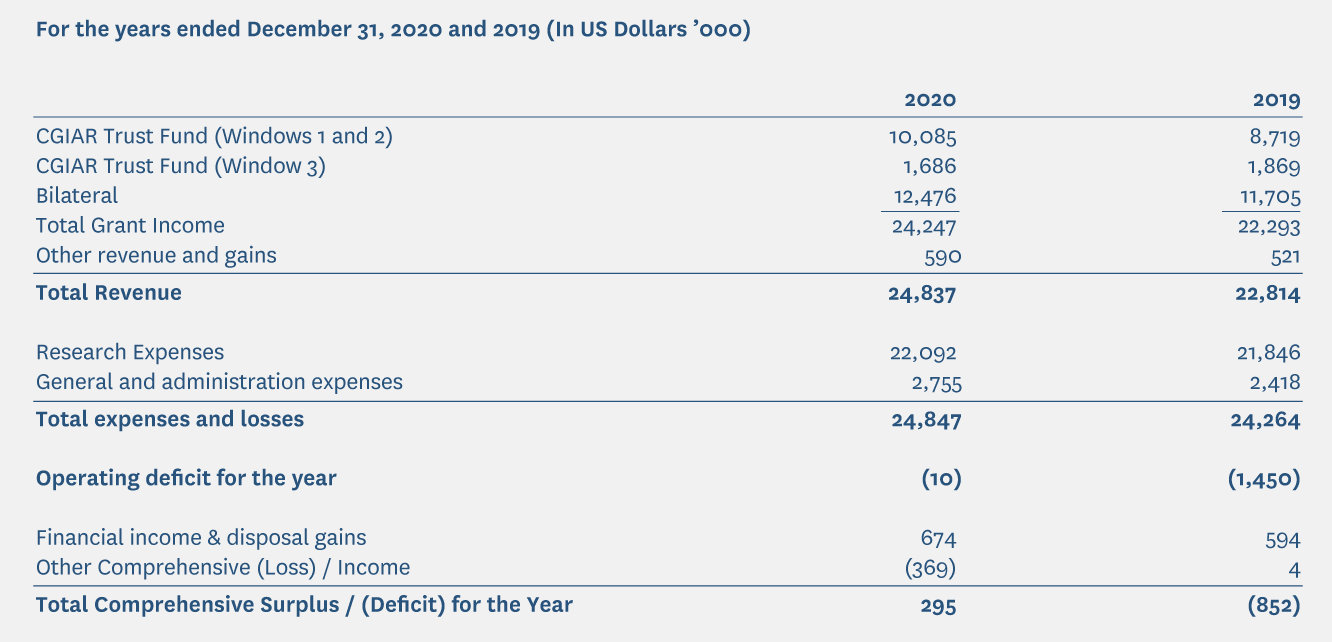
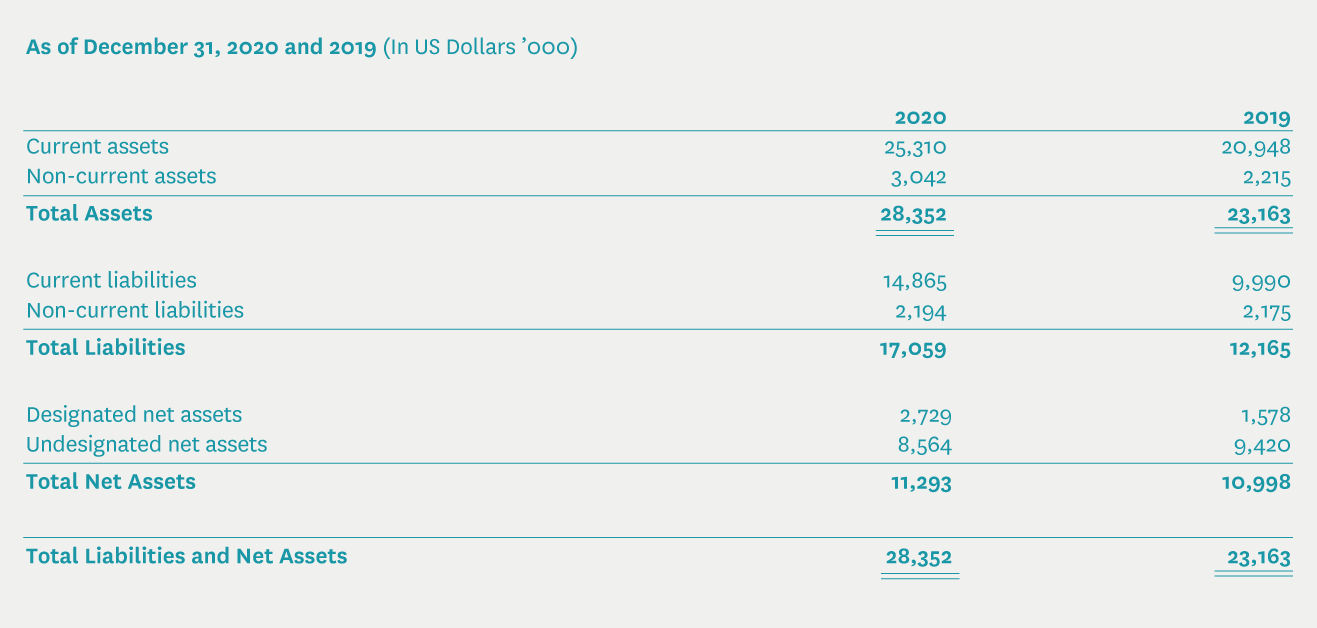

Principal investment partners
IWMI research receives support from Funders contributing to the CGIAR Trust Fund as well as grants from various organizations.
We gratefully acknowledge their support for our collaborative efforts to achieve water security across the developing world.
- African Development Bank (AfDB)
- Asian Development Bank (ADB)
- Asian Infrastructure Investment Bank (AIIB)
- Australian Centre for International Agricultural Research (ACIAR)
- Bill & Melinda Gates Foundation
- Bundesministerium fur wirtschaftliche Zusammenarbeit und Entwicklung (BMZ) (Federal Ministry for Economic Cooperation and Development), Germany
- CGIAR Trust Fund
- Danish International Development Agency (Danida)
- Department of Agriculture, Forestry and Fisheries (DAFF), South Africa
- Department of Foreign Affairs and Trade (DFAT), Australian Government
- Economic and Social Research Council (ESRC), United Kingdom
- European Bank for Reconstruction and Development (EBRD)
- European Commission (EC)
- Food and Agriculture Organization of the United Nations (FAO)
- Foreign, Commonwealth & Development Office (FCDO), United Kingdom
- Government of Karnataka, India
- Government of the Netherlands
- Green Climate Fund (GCF)
- Helmsley Charitable Trust
- International Development Research Centre (IDRC)
- International Fund for Agricultural Development (IFAD)
- International Science and Technology Center (ISTC)
- ITC Limited, India
- Livelihoods and Food Security Fund (LIFT), Myanmar
- Mekong River Commission (MRC)
- Millennium Challenge Corporation (MCC), USA
- Ministry of Agriculture and Farmers Welfare, India
- Ministry of Agriculture and Rural Affairs, China
- Ministry of Agriculture, Forestry and Fisheries (MAFF), Japan
- Norwegian Institute of Bioeconomy Research/Norsk institutt for bioøkonomi (NIBIO), Norway
- Sir Dorabji Tata Trust and Sir Ratan Tata Trust
- Swedish International Development Cooperation Agency (Sida), Sweden
- Swiss Agency for Development and Cooperation (SDC), Switzerland
- United Kingdom Research and Innovation (UKRI)
- United Nations Environment Programme (UNEP)
- United Nations Children’s Fund (UNICEF)
- United States Agency for International Development (USAID)
- United States Department of State
- Water Research Commission (WRC), South Africa
- World Bank
HOST COUNTRIES: Sri Lanka, Egypt, Ethiopia, Ghana, India, Italy, Laos, Myanmar, Nepal, Pakistan, South Africa, United States of America and Uzbekistan
Our priority is to deliver research and knowledge services to, and through, partnerships.
Over decades of experience in research for development, IWMI has learned that no one achieves impact at scale by acting alone. Research contributions to innovation systems are only possible through partnerships. IWMI prioritizes partnerships that put in place the relationships needed to link research to local change and innovation, and to policy and institutional change at national, regional and global levels.
IWMI uses its unique and extensive field-based presence of water scientists, its long-term partnerships with governments, researchers, nongovernmental organizations, the private sector and development practitioners, as well as its membership in CGIAR, to identify key partners and prioritize cooperation with coalitions at local, basin and national levels.
2020 Board of Governors
Roberto Lenton, Argentina
(Chair, IWMI Board of Governors) Professor Emeritus, University of Nebraska, Lincoln
Chemutai Murgor, Kenya
(Vice Chair, IWMI Board of Governors) Chief Financial Officer, Kenya & East Africa, Standard Chartered Bank Kenya Limited
Patrick Caron, France*
Vice President for International Affairs at the University of Montpellier
Anura Dissanayake, Sri Lanka
Secretary, Ministry of Irrigation, Government of Sri Lanka
Ismahane Elouafi, Canada*
Director General, International Center for Biosaline Agriculture
Shenggen Fan, China*
Chair Professor, College of Economics and Management, China Agricultural University
Marco Ferroni, Switzerland*
Chair, CGIAR System Board
David Grey, UK
Visiting Professor of Water Policy, University of Oxford, and
Honorary Visiting Professor, University of Exeter
* CGIAR Board Member
Neal Gutterson, USA*
Ex- Senior Vice President and Chief Technology Officer, Corteva
Simi Kamal, Pakistan
Chairperson, Hisaar Foundation
Alyssa Jade McDonald-Baertl, Australia*
Entrepreneur; and Advisor to the European Commission
Letitia Obeng, Ghana**
International Consultant
Alice Ruhweza, Uganda*
Africa Region Director for the World Wide Fund for Nature (WWF)
Mark Smith, Canada
Director General, International Water Management Institute (IWMI)
M. Ann Tutwiler, USA
Senior Fellow, Meridian Institute
Dominic Waughray, UK
Senior Fellow, World Resources Institute
Hilary Wild, UK*
CGIAR System Board Member; and Trustee and Audit Committee Chair of WaterAid
** Completed her term in October 2020
Our locations
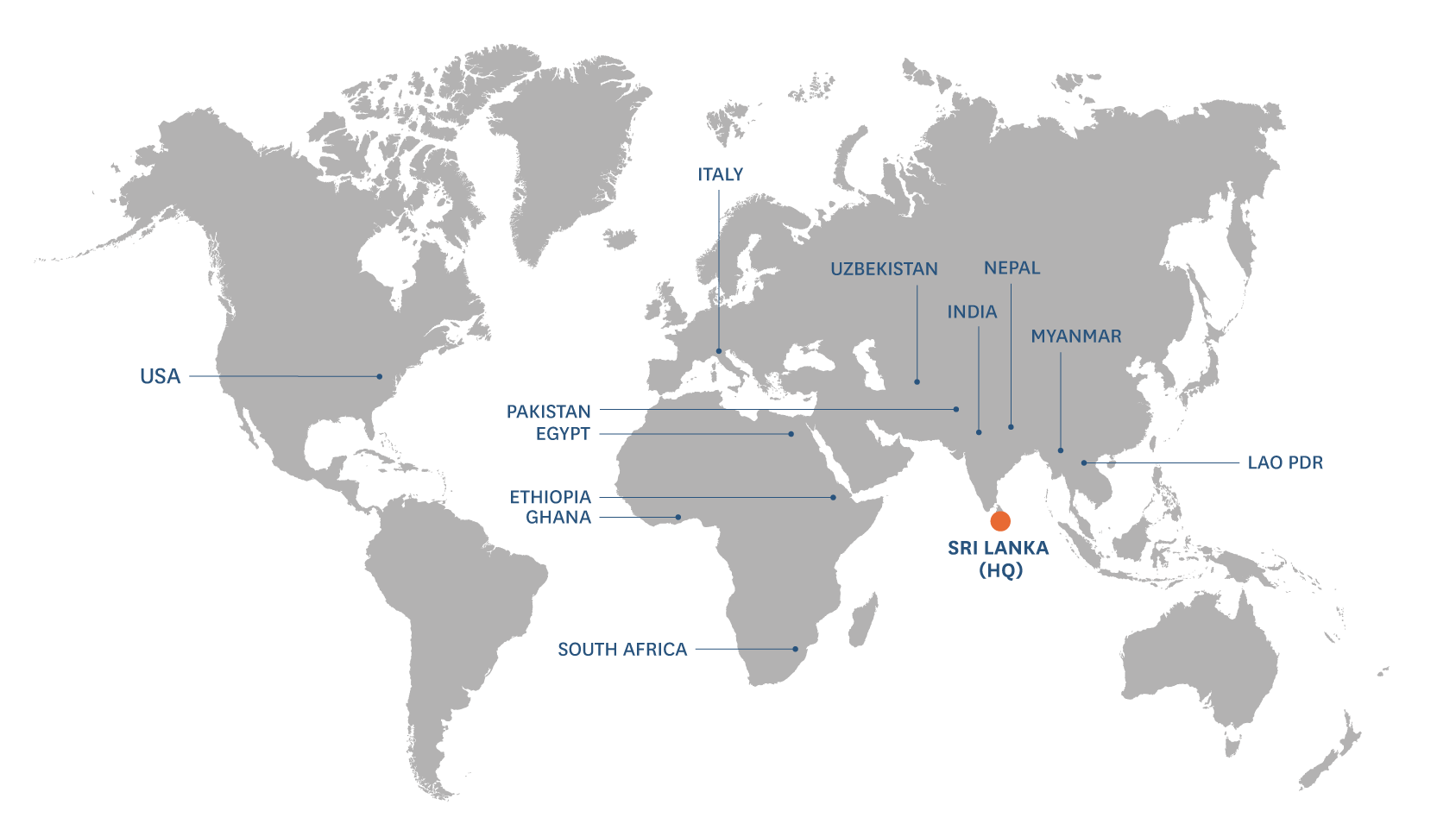
IWMI Annual report 2020. Colombo, Sri Lanka:
International Water Management Institute (IWMI). doi: https://doi.org/10.5337/2021.210

